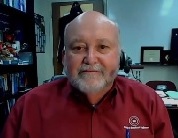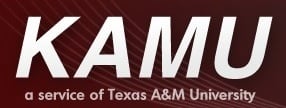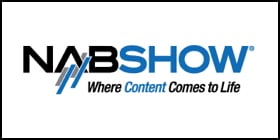Excellent Engineer Emphasizes Education | Telos Alliance
By The Telos Alliance Team on Mar 11, 2015 1:48:00 PM
 Excellent Engineer Emphasizes Education
Excellent Engineer Emphasizes Education
Wayne Pecena is Director of Engineering at Texas A&M University, and 2014 recipient of Radio World's Excellence in Engineering Award. Wayne has spent his entire career as broadcast engineer at Texas A&M and KAMU Radio / TV - an impressive feat for someone in any industry - and has been recognized for his continuing education initiatives for broadcast engineers.
Despite his 40-plus-year career and industry-wide recognition as a stellar engineer, Wayne is humble about his achievements. And maybe that's where his emphasis on continuing education originates; there's always something new to learn, so you can't be too humble.
In recognition of his award, Wayne recently appeared on This Week in Radio Tech to talk shop with Kirk Harnack, and The Telos Alliance donated a gift to the annual KAMU auction, to be held in May, in Wayne's honor. I recently had an opportunity to chat with Wayne about his award, and his distinguished career, direct from the KAMU studios in College Station, Texas.
Dave: Congratulations on recently being named recipient of Radio World's Excellence in Engineering Award. You’re highly regarded in the industry… How have you gained such recognition?
Wayne: Well, I don't know that I would want to describe myself to that extreme. I have gained some popularity in probably the last three years, particularly in some continuing education efforts, primarily through the SBE that I became involved in. These have been pretty well received – specifically dealing with networking, or IP networking, focused or oriented at the broadcast engineer. And I have, over time, done a number of different [programs], ranging from online webinars sponsored by the SBE, to in-person presentations, and the typical conference presentations and tutorials focused on the CBNE preparation for that exam. And that's really kind of, I guess, where I have gained my popularity so to speak… That really, I think, was the focus of the Radio World award was the continuing education efforts that I have been doing.
Dave: It’s a common theme in the industry right now that the future of broadcast engineering is kind of in question because not many people are coming up through the ranks. Do programs like these not only benefit those who have been in the industry for a while, but also those who might have an interest in becoming broadcast engineers?
Wayne: Well I think some of both. If you look at the traditional, and I think in some ways that I fit, more or less, the traditional broadcast engineer that has come up through the ranks with maybe some of that initial interest sparked through being a ham radio operator. Broadcast engineering provided a way to play with real transmitters and that sort of thing. You don't see that today, of course, as much.
But there are still people interested in the industry and I think the knowledge of, really, information technology is going to be crucial to anyone in the industry, whether they're new to the industry or they have been in the industry for a while. That IT knowledge is basically essential because, as you well know, the broadcast plant today, and certainly the future one, probably looks more like an IT infrastructure than what we thought of as a traditional broadcast plant.
So I think there's some of both involved. And, of course, another aspect, particularly from the education side, is you have people well-versed in the IT world that also then enter the broadcast engineering world and some of the traditional knowledge that most broadcast engineers kind of take for knowledge, that is really some new ground to some of the IT folks. What might be regarded as pretty simple things to a broadcast engineer, particularly in the RF world, but even in the audio and video worlds, just simply audio interfacing – handling all the levels and some of that stuff – becomes kind of challenging to someone that is an incredibly sharp IT person.
Dave: What sparked your interest in broadcast engineering? Have there been certain engineers you’ve worked with throughout your career who influenced you?
Wayne: I certainly I had my mentors along the way. Gosh, when I was in high school a good friend, which really that friendship developed through ham radio and my interest in that, his family basically owned a local broadcast station. I really never w orked for them or anything like that, but I certainly hung around there a lot. I spent a lot of time and that probably got my initial interest sparked.
orked for them or anything like that, but I certainly hung around there a lot. I spent a lot of time and that probably got my initial interest sparked.
My first real job in broadcasting was with Texas A&M as a student worker when I came to A&M to go to school. There was a gentleman in town, a long-time broadcast engineer. He actually was a consulting engineer that also had part ownership in one of the local radio stations. He was, quite honestly, quite a motivator, particularly in the education side. His motivation, I guess, got me interested in the SBE back in the '70s and, of course, I have been active in that organization since then. So those are a couple of folks that had some significant influence.
Dave: Have you been there at KAMU your entire broadcast career?
Wayne: I have! I began as a student worker, a few months, and that was in the summer of 1973 when I initially came to work here. Later that year, actually I believe it was in December of '73, I went into a full-time position. At the time, that was simply referred to as a Radio / TV Technician, and then I have sort of climbed the food chain over the past years.
Dave: That's really impressive to have been at one facility for such a long time.
Wayne: It is. Yeah, I guess it is probably unusual in today's time. I don't know, I chalk it up to being more luck than anything else. I mean, I did not have a plan. This just sounded like a better job. When I came to work as a student worker, it seemed to be a better job than the one I had at the time. So I made that move and, of course, being in the educational environment I was also going to school, even still when I was working full-time.
So I took the four year bachelor degree and expanded it out to, probably six years to actually get it, and I did a master's degree over probably another four or so years. So the education environment was good in terms of that and also exposed me to a lot more technology and opportunities than I might have had elsewhere. But certainly when I went to work that summer of '73, I didn't think I would still be here 40-something years later.
Dave: Have you ever spent any time in the on-the-air side of radio? Or has it been exclusively as a broadcast engineer?
Wayne: I have done, particularly on the radio side, a little bit of on-air work. I think it was more of, “There's just nobody else left.” That certainly would not be considered my strong point. When we first put KAMU-FM on the air, I did all the early morning sign-on shifts and everything. But certainly that is not a strong suit of mine. I'm a much more behind the scenes techy guy.
Dave: I'm sure you have tons of interesting stories, but what are some of the more interesting challenges you've faced as a broadcast engineer?
Wayne: I think every broadcast engineer has their war stories of the crisis moment, whether it's the transmitter off the air or you're out in the field on some kind of particularly remote project and so forth. I don't think I've had any of those that are any more exciting or less exciting than anyone else. I think overall, looking back over time, most of the challenges in some ways are the same today as they were 20 or 30 years ago. Particularly being in a non-commercial role… that brought, probably, some advantages and some disadvantages with it. But, again, I guess there are endless war stories but I don't know that I feel I really have anything that is significant.
Dave: I understand you'll be presenting at NAB. What topics will you be presenting on?
 Wayne: Well, all of the topics will be IT networking-related. Actually, there are kind of two areas that I will be doing. One is the Ennes tutorial that is on Saturday prior to the opening of the broadcast engineering conference that NAB has always held. The focus for that day is building the all-IT facility, not necessarily focused on radio or focused on TV, but in general terms, building an IP-based facility. I am doing the opening tutorial, which is scheduled from 8-11 am.
Wayne: Well, all of the topics will be IT networking-related. Actually, there are kind of two areas that I will be doing. One is the Ennes tutorial that is on Saturday prior to the opening of the broadcast engineering conference that NAB has always held. The focus for that day is building the all-IT facility, not necessarily focused on radio or focused on TV, but in general terms, building an IP-based facility. I am doing the opening tutorial, which is scheduled from 8-11 am.
The first hour is just an introduction to, or a review of IP networking, kind of depending on where you're coming from. The next hour is focused on how do you actually build and configure an IP network, and we're going to use examples from both Cisco hardware and HP hardware and look at it. This is going to be as close to a hands-on demonstration as you can get without it being hands-on for everybody in the room.
Then the final hour is really putting together and building a segmented or a layered network in a broadcast facility. Again, using real equipment and everything. So as practical as it can be made is kind of the goal for the Ennes workshop.
Wayne: And then I have a couple of other papers which will be presented in the regular broadcast engineering conference. I actually have submitted two proposals and they accepted both of them. On Tuesday, I have one in the morning and one in the afternoon. One is addressing Ethernet switch security, and the other is regarding Wireshark for doing trouble-shooting. So that's kind of my plan for NAB this year.
Dave: Sounds like you'll be busy with days full of presentations on the agenda for you.
Wayne: Yes, it will be a busy time.
Thanks Wayne!
Telos Alliance has led the audio industry’s innovation in Broadcast Audio, Digital Mixing & Mastering, Audio Processors & Compression, Broadcast Mixing Consoles, Audio Interfaces, AoIP & VoIP for over three decades. The Telos Alliance family of products include Telos® Systems, Omnia® Audio, Axia® Audio, Linear Acoustic®, 25-Seven® Systems, Minnetonka™ Audio and Jünger Audio. Covering all ranges of Audio Applications for Radio & Television from Telos Infinity IP Intercom Systems, Jünger Audio AIXpressor Audio Processor, Omnia 11 Radio Processors, Axia Networked Quasar Broadcast Mixing Consoles and Linear Acoustic AMS Audio Quality Loudness Monitoring and 25-Seven TVC-15 Watermark Analyzer & Monitor. Telos Alliance offers audio solutions for any and every Radio, Television, Live Events, Podcast & Live Streaming Studio With Telos Alliance “Broadcast Without Limits.”
Recent Posts
Subscribe
If you love broadcast audio, you'll love Telos Alliance's newsletter. Get it delivered to your inbox by subscribing below!